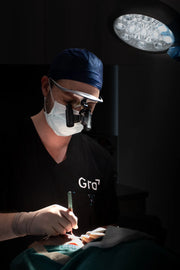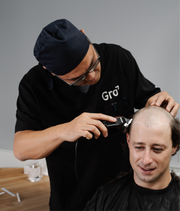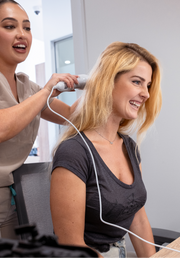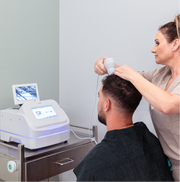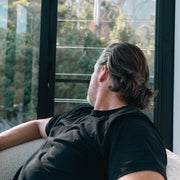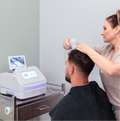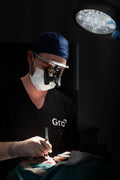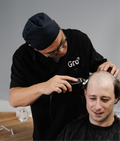Thinking about heading overseas for a hair transplant? While international options can appear affordable and convenient, they may carry risks that are not always immediately apparent. A long-term decision like hair restoration deserves careful thought and clinical due diligence.
1. Not All Clinics Are the Same
Hair transplant standards and regulations vary greatly around the world. While some international clinics offer safe and professional care, others may not operate under the same medical and hygiene standards you would expect in Australia or New Zealand. This variation can influence everything from infection control protocols to practitioner training and patient follow-up. Choosing a clinic with medically trained staff and transparent safety protocols is essential for long-term success.
2. Lack of Personal Consultation
Many overseas clinics provide limited or no personal consultation before offering a treatment plan. Assessments may be based solely on photographs or online forms, without a clinical exam, scalp analysis, or a detailed health history review. This creates a higher risk of receiving a treatment that may not be clinically appropriate or aligned with your goals. At Gro Clinics, every treatment begins with a comprehensive consultation—either in-person or via telehealth—conducted by a trained professional who understands your condition, medical background, and expectations.
3. Use of Body Hair as Graft Material
Some patients who have undergone procedures overseas report that non-scalp hair (e.g. chest or pubic hair) was used as graft material. While technically transplantable, body hair is often structurally different from scalp hair in texture, colour, and growth cycle. When used on visible areas like the hairline, it can produce unnatural results. At Gro Clinics, only donor hair that matches the scalp in quality and appearance is considered, and all graft selection is overseen by medical professionals.
4. Importance of a Second Opinion
Before booking an overseas procedure, it's advisable to consult locally with a registered practitioner. A second opinion helps ensure your diagnosis is accurate, the recommended treatment is safe, and your expectations are realistic. Gro Clinics offers clinical assessments with qualified staff and doctors across Australia and New Zealand, so you can make an informed decision before committing to treatment—anywhere in the world.
5. Practitioner Qualifications and Oversight
In Australia and New Zealand, regulated health professionals must meet strict standards for education, registration, and continued development. In contrast, some international clinics may allow non-medical personnel or technicians to perform transplant procedures without medical supervision. This may increase risks such as poor graft survival, improper technique, or avoidable complications. At Gro Clinics, our procedures are performed by doctors and supported by trained medical teams in line with relevant regulations and health standards.
6. Long-Term Impact of a Poorly Executed Procedure
A hair transplant is intended to provide a permanent outcome. However, suboptimal results—such as uneven growth, visible scarring, or unnatural density—can create lasting concerns. Revision procedures may not always be possible due to depleted donor supply. Choosing a provider that prioritises natural-looking results, follow-up care, and medical supervision helps support your long-term satisfaction.
7. The Gro Clinics Approach
At Gro Clinics, we focus on safe, doctor-led procedures that are tailored to your individual needs. Our clinics across Australia and New Zealand offer:
- Thorough consultations, either in-person or via telehealth
- Doctor-performed and medically supervised procedures
- Prescription hair care and medical therapies when clinically appropriate
- Ongoing support and transparent expectations before, during, and after your treatment
- Locations in Brisbane, Gold Coast, Sydney, Melbourne, Perth, and Auckland
Want to know what’s right for you? Book a consultation or call 1300 787 563 to learn more.
Frequently Asked Questions
Is it safe to get a hair transplant overseas?
It depends on the clinic, the practitioner's qualifications, and the country’s safety standards. Some international clinics may not meet the same regulatory or hygiene benchmarks as Australian or New Zealand providers.
Can body hair be used in a hair transplant?
In certain cases, yes—but body hair differs from scalp hair and may not produce a natural-looking or long-lasting result. Donor hair selection is a critical part of the planning process.
What’s the benefit of getting a local consultation first?
A local consultation can confirm your suitability for treatment, explain risks, and help set expectations. It’s a good way to make sure you're getting clinically appropriate advice before travelling overseas.
How can I check a practitioner's qualifications?
In Australia, you can check a doctor's registration through the AHPRA website. In other countries, research the local governing body and ask for documentation of credentials and experience in hair restoration.

